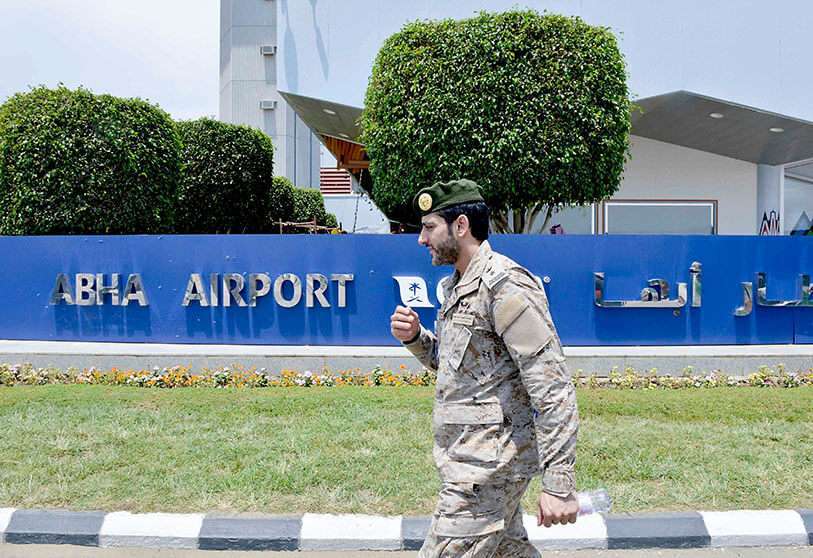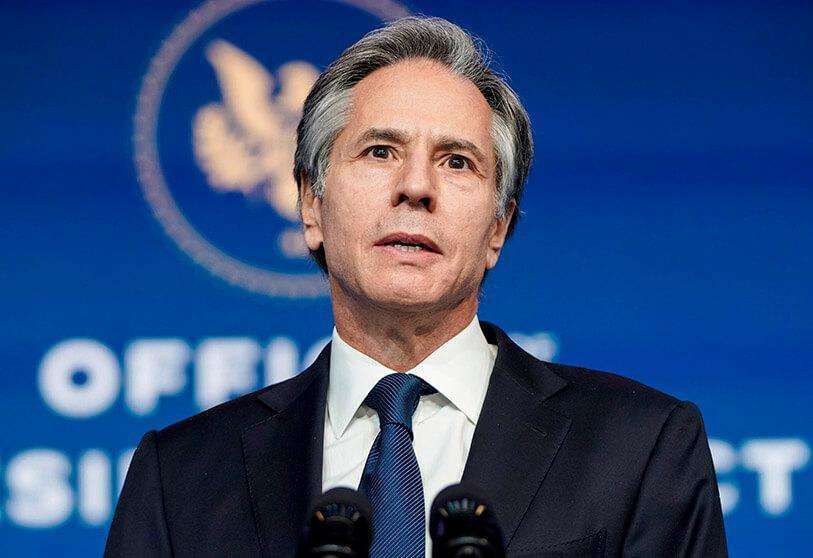Houthis attack Saudi Arabia-led coalition positions

The Houthis attacked the Saudi airport of Abha with two drones of the Samad 3 and Qasef 2K types, according to the rebels' military spokesman, Yahya Sare'e. "This target is part of the natural and legitimate response to the escalation of the air aggression and its total blockade on Yemen," Sare'e added. Saudi state television station Al-Ejbariya said both were shot down by defence systems and caused no fatalities. This is the fourth consecutive Houthi attack on Saudi Arabia in the last week.
The same airport was the target of a similar attack on Wednesday. "The terrorist attempts are systematic and deliberate to target civilians and civilian facilities," the Saudi-led coalition said in the statement reported by Al-Ejbariya. The Houthis, for their part, have vowed that they will not stop cross-border attacks against Saudi Arabia in response to the military campaign targeting the organisation in Yemen.
The Houthis' main objective, however, is to take control of the governorates of Marib and al-Jawf. Both areas, located east of Sana'a, are home to abundant oil and gas reserves. For this reason, the insurgents launched an offensive against the city of Marib last week. But analysts add that it is also an attempt to control the entire north of the country and strengthen their negotiating position.
The conflict continues after eight days of fighting. A total of 100 fighters are reported to have been killed in the latest 12-hour battle west of Marib, according to local sources. 75 of them Houthis, who are reportedly carrying out hand-to-hand attacks against government forces. "Only pushing the Houthis out of Marib militarily will stop the impending disaster. If the Houthis take the city, say goodbye forever to any potential for peace, future stability and security in the region," says Nadwa al-Dawsari, a researcher at the Middle East Institute.

The Houthis are reportedly suffering heavy losses in recent days. Journalist Ali al-Sakani reports that government forces have begun the counter-attack in the company of several allied tribesmen and flanked by coalition fighter jets. The journalist adds that the Houthi special forces commander who led the offensive against Marib, Abu Salah al-Hamzi, has been killed. He was listed as one of the closest members of Abdul-Malik al-Houthi, the leader of the rebels.
The town of Marib is the site of the bloodiest fighting since the start of the war, analysts say. Located about 120 km east of Sana'a, the city has undergone major transformations since 2015. Oil and gas reserves, as well as the autonomy gained under Sultan Al-Aradah's government, partially insulated the region from conflict, and it has flourished as one of the country's economic hubs.
Marib became a haven for the displaced, and the last bastion of the central government in northern Yemen. However, its relative stability and success has been threatened by escalating fighting in the governorate for more than a year, as rebels seek to dominate the position.
"Houthi violations in Hodeidah and attacks on Marib, which is a haven for millions of internally displaced people fleeing Houthi oppression, coincide with their ongoing attack on Saudi Arabia. It all confirms once again how the Houthis do not care about agreements and the search for peace," Yemen's foreign ministry said in a statement.
Meanwhile, the Houthis will no longer be listed as a terrorist organisation by the United States on 16 February. This was confirmed by US Secretary of State Antony Blinken in a statement. "We have heard warnings (...) that the designations could have a devastating impact on Yemenis' access to basic commodities such as food and fuel," added President Biden.

Blinken made clear in the statement that key insurgent leaders will remain on the US blacklist and further sanctions against other leaders, both unilaterally and under the UN umbrella, are not ruled out. In this sense, he hopes to "continue to draw attention to the group's destabilising activity and pressure it to change its behaviour".
The Secretary of State insisted on his criticism of the "malicious actions" of the rebels, whom he accused of all kinds of practices ranging from repressive situations to the seizure of territory by force. The UN Secretary General's spokesman, Stéphane Dujarric, said that the US decision was "extremely positive" and said he hoped it would encourage a political solution in Yemen.









